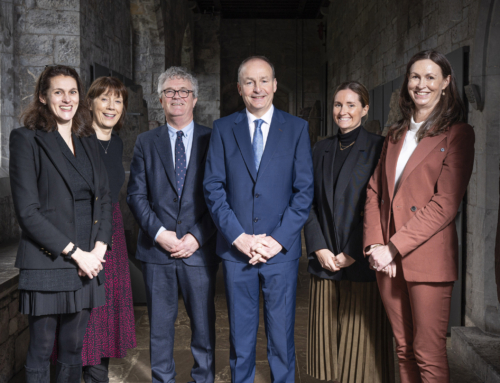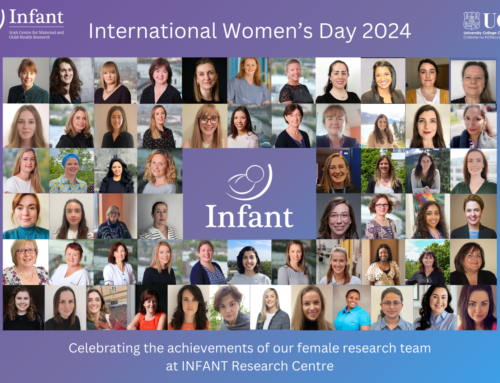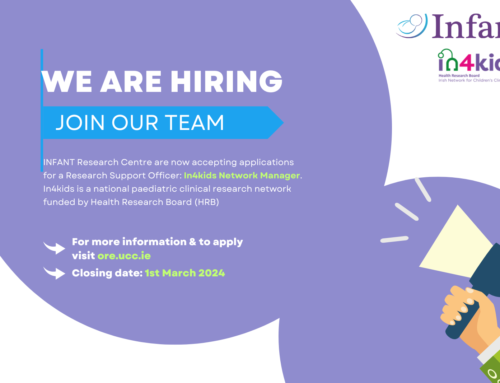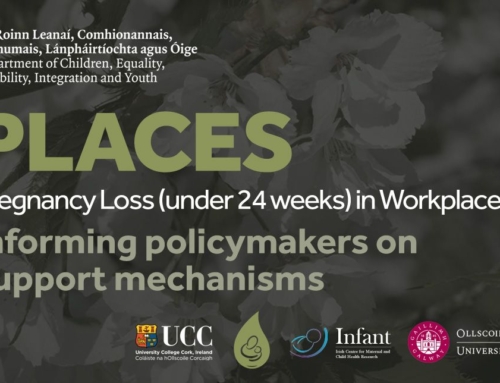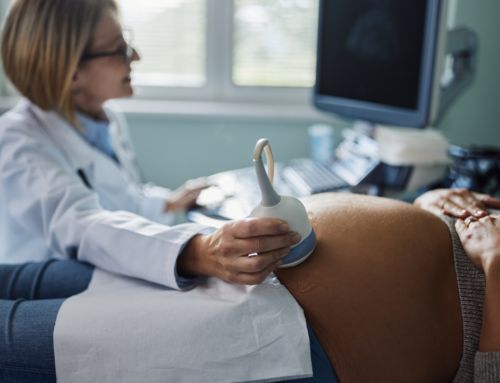Thursday 22 August 2019
Last November, Our PhD researcher, Sonia Lenehan, was voted the winner of Neon Zone’s I’m a Scientist, Get me out of here! Sonia won €500 to be used for a public engagement project of her choice. I’m a Scientist is an online STEM engagement event where students chatted and interacted with scientists through online chats and forums. The students then voted for their favourite scientist.
Keep reading for an update on what Sonia has been up to!

Pictured: Sonia and her workshop participants.
I have always loved science and am a firm believer that everyone should do science for a few years so that they have a basic understanding of how their body works and how the world around them works.
As I grew older, I realised that some people were not being given this chance simply because they had a disability. From personal experience, I know that children with sight loss were told that they were not able to do science because of their disability. Unfortunately, children with disabilities are often excluded from subjects in school because of their disability rather than their ability. I have always wanted to do something about this because I believe with a little imagination on our parts – and some funding – we can develop a school system that is inclusive of everyone and is a better learning environment for every child.
I loved competing in I’m A Scientist and was delighted to win the prize money allowing me the chance to create something I am very passionate about. I really want to change the way science is taught in schools so that every child, no matter their disability or ability, can access science. I believe that science is a subject everyone can do once it is taught in an accessible way.
Luckily the National Council for the Blind Ireland (NCBI) agreed with me and they have been incredibly supportive from day one. Once I knew that I had won and that the prize money was on the way, I began contacting colleges and businesses to tell them about my story and to ask them if they had any old anatomy models that they would like to donate. I knew the €500 would not get me too far as models are expensive but people were incredibly generous. Trinity College Dublin donated various skeletons, bones, knee and shoulder joints. HS Publications in Cork donated models of the heart, torso and the knee and the Muiriosa Foundation donated CPR dummies.

Pictured: Materials for Sonia’s workshop.
Once I secured the skeletons and models, I contacted Caroline Lane from NCBI and we chatted about our vision for this program. We both wanted to empower children and young adults with sight loss to make decisions about their own bodies. My background is in neuroscience, so as a result, the programme became very biology based. With the prize money, I bought talking thermometers and talking blood pressure monitors as this equipment would make the sessions very relatable to real world situations. Then I spoke to the Public Engagement Officer at INFANT and I borrowed a number of resources to see if they would work for children with sight loss.
Next Caroline and I agreed that we should get a group of children and young adults with sight loss together and ask them their opinions. The idea was to try to provide a tactile workshop where a small group of students could learn a little about their bones, their joints and their brains, how scientists are trying to listen to your brain waves and a short introduction to coding.
On the 31st of July I travelled to Maynooth University to give my session. There were eleven students in the group ranging in age between 11 and 19. This was a tester session and it went really well! The group were enthusiastic and interactive; they also asked amazing questions and gave great feedback.
I really enjoyed myself and can’t wait to expand this project. Hopefully in the future, alongside the NCBI, we can run science camps every year and have information days were teachers can come in and get ideas on how to make their classrooms and lessons inclusive to all children.
I plan to use the rest of the money to travel to meetings on accessibility and education so that I can understand what else is required and for anything else the NCBI focus group think is needed.
I would like to thank I’m A Scientist for providing me with this opportunity. I would also like to thank all the children who asked me questions and voted for me! To everyone who donated models to the project, thank you so much – you have allowed the prize money to stretch father than I ever thought it could. Thank you to my friend who gave up her time to help me run the session! And finally, to the NCBI and the children and young adults from the focus group, thank you for listening to my idea and for sitting through the first session. I can’t wait to do it again!


